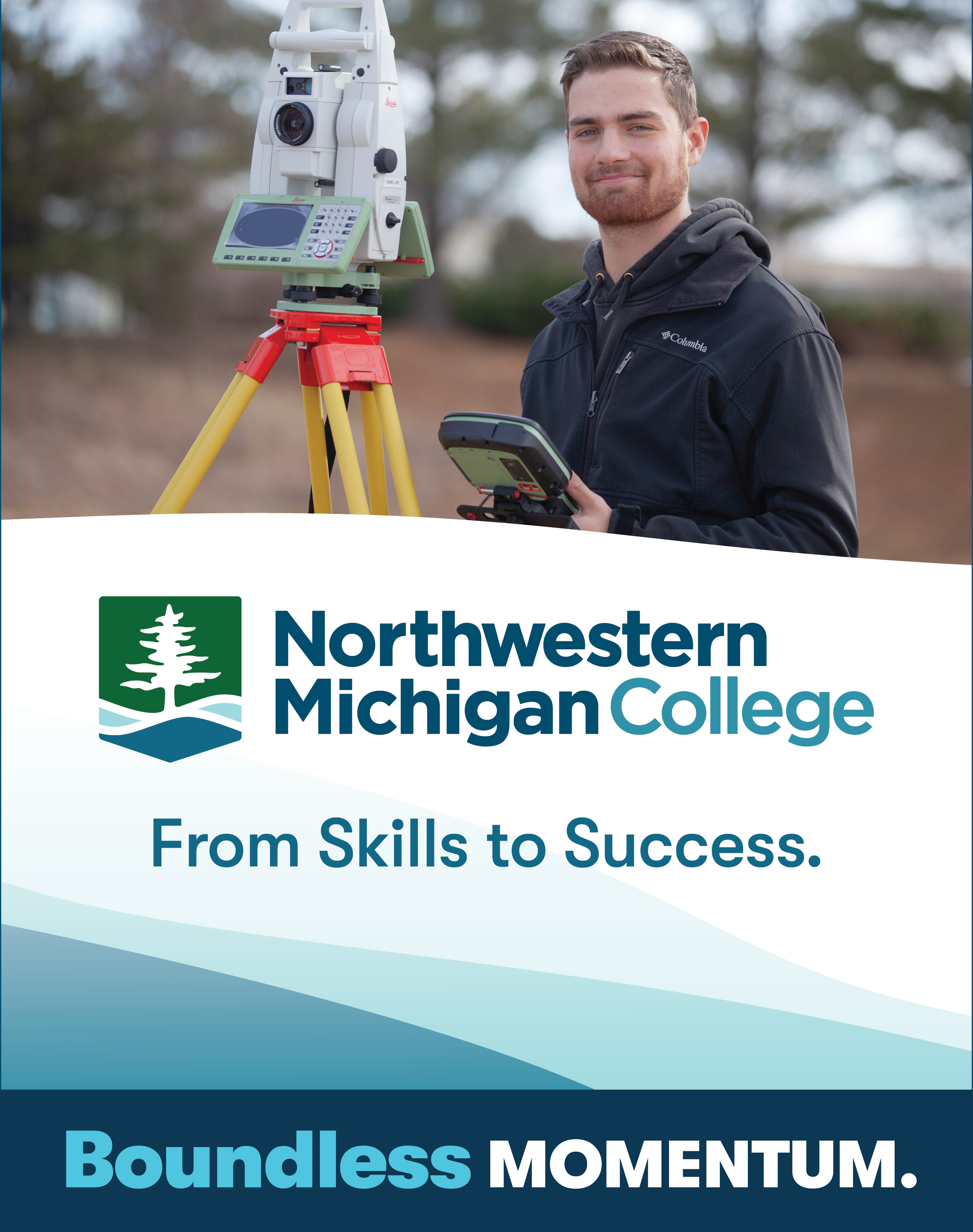
How To Solve Traverse City's Traffic And Parking Problem
By Luke Haase | May 15, 2019
Ask any “rush hour” driver on 14th Street, commuter stuck in traffic on South Airport Road, downtown employee, or summer tourist in search of a parking spot, and there’s no avoiding the impression that Traverse City has a traffic and parking problem.
The core of the issue, many say, is the number of commuters driving daily into downtown Traverse City, the region’s epicenter. Exacerbating the problem is that most of them are driving alone, consuming a coveted downtown parking spot alone, all day, every weekday. A 2017 survey of 432 downtown employees and volunteers found that 93 percent of hourly and 88 percent of salaried employees drive alone and park when going to work. Even OHM Advisors, the consultants conducting the East-West Corridor Transportation Study, note the destination for much of east-west traffic is the City of Traverse City, not traffic trying to get around the city.
Some solutions are already in the works. Downtown Traverse City, already having erected two parking structures, is planning a third. The east-west study should yield some changes to help get drivers between the two sides of Traverse City without using clogged downtown streets. And through a partnership between the Traverse City Downtown Development Authority (DDA) and the Bay Area Transportation Authority (BATA), downtown employees can now get an annual commuter bus pass for as little as $30 a year (Parking Administrator Nicole VanNess says 26 individuals at eight downtown businesses are using it so far).
But some advocates seek to not only improve infrastructure, but actually get cars off the roads. Enter the TC Mobility Lab, founded with the singular goal of exploring ideas to help get 500 cars a day off local roads.
James Bruckbauer, who’s leading the charge through his role as Deputy Director of The Groundwork Center, insists Traverse City can no longer build its way out of the problem. “When we keep making decisions that prioritize the car, then we get congested roads and higher demand for parking spaces.”
Work within the TC Mobility Lab began by seeing what was working elsewhere. Aspen, Colorado has become a small town model for improving traffic and getting cars off the road – and its population (7,000) and annual influx of tourists look a lot like Traverse City. Within a comprehensive plan, Aspen now offers a bikeshare program, carsharing, and five app-based, free “downtowner” shuttles that circulate throughout its central district. Aspen officials aim to remove enough cars to open up 800 parking spaces; the city plans to add e-scooters and three more shuttles next year.
Then Bruckbauer realized you can’t look to the future of mobility without visiting Columbus, which beat 77 other cities to win the Smart City Challenge in 2016, earning a $40 million U.S. Department of Transportation grant and $10 million from Vulcan, Inc. The Buckeye City could now be considered the premier laboratory for the future of mobility, showcasing everything from driverless vehicles, scooters, and free public transit to a sort of living downtown museum of mobility concepts and a workspace where entrepreneurs work alongside public transit officials and utility staff to smooth future transportation innovation.
The Ticker accompanied Bruckbauer on a day trip to Columbus, where he spent a packed day meeting with mobility experts and startup CEOs and testing bikes and driverless vehicles, all with an eye toward bringing solutions to Traverse City.
In a morning meeting in a hip, renovated warehouse office, Bruckbauer hears from Share, a "microtransit" company that serves a market between public transportation and rideshare services like Uber, shuttling individuals to and from work or to appointments. Could such a solution work for northern Michigan's largest employers like Munson or Hagerty, which have groups of employees living in the same neighborhoods driving to the same downtown workplaces during roughly the same days and times, Bruckbauer wonders.
During a brief bikeshare demonstration, a Lyft representative says most Columbus bikeshare users are annual subscribers, grabbing bikes throughout the city to commute from home in nearby to work downtown or to run errands throughout the day. 597 bikes are positioned at 72 stations (like the one pictured, above left) in and around Columbus; users pay either $8 per day or $75 per year for unlimited 30-minute rides (corporate memberships discount prices even more). If the TC Mobility Lab wants to bring bikesharing to Traverse City, Bruckbauer asks, are pedal bicycles or electric bikes recommended? And how challenging is it to work with local government to install bike stations in public places?
Later in the day at the headquarters for Smart Columbus, Doug Arseneault of the Central Ohio Transit Authority (COTA) shares the successes of the C-Pass, making transit passes available to all downtown employees at no cost (discounted rates are footed by downtown property owners). Adoption has been strong since the program's launch last June.
Smart Columbus Special Projects Coordinator McKinzie Harper says the goal is to get people to “drive electric, drive less, and go farther” toward a future that is eventually “connected, autonomous, shared, and electric.” Upon hearing Traverse City’s downtown parking rates, Harper notes they’re cheap compared to most areas, so there’s “no obvious pain point for residents yet” and that it will take lots of education, innovation, or free and easy alternatives to get people out of their cars.
After an exhausting but fruitful fact-finding mission in Ohio, Bruckbauer returns home optimistic: “The Columbus trip reinforced the idea that the future of transportation is electric, autonomous, and shared. The people we spoke with have shown how technology improvements are making transit and vanpooling a more attractive option for everyday commuters. And, riding around the streets of Columbus in an autonomous shuttle made me realize that driverless vehicles will be everywhere sooner than we think.”
PART TWO OF THIS TWO-PART SERIES, SCHEDULED FOR NEXT WEEK, WILL DISCUSS WHAT THE TC MOBILITY LAB WILL DO NEXT, INCLUDING WHAT MOBILITY SOLUTIONS ARE COMING TO TRAVERSE CITY THIS SUMMER.
Comment






